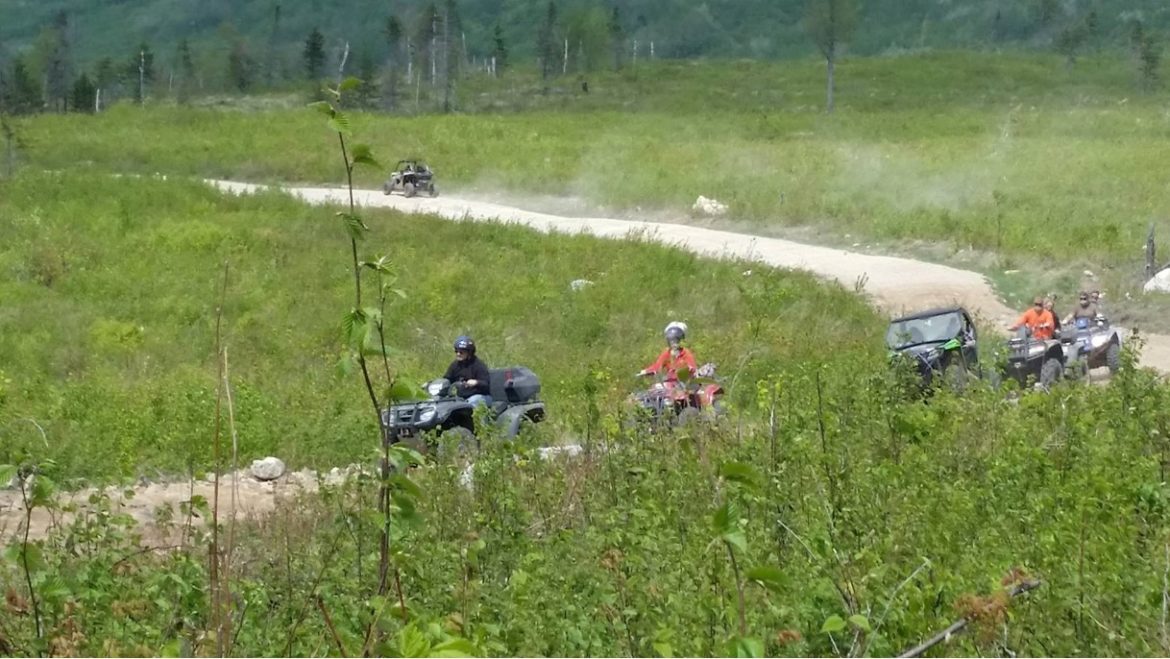By PAULA TRACY, InDepthNH.org
CONCORD – The president of the state’s largest OHRV trail system says an amended bill headed for a Senate vote Wednesday could kill future trail efforts statewide.
Stephen Clorite of Berlin, president of the North Country OHRV Coalition that operates the 1,000-mile Ride the Wilds trail system in the North Country, called the amended House Bill 591 “scary.”
The Senate will vote Wednesday after the Senate Transportation Committee passed the measure last week.
It would require municipalities to notify property owners along roads being considered for OHRV use before public hearings on the proposals.
The bill began as an equipment rules modification measure and passed that way in the House, but an amendment now would require the municipalities to notify road abutters if a local ATV club wants to use a road to connect to trails.
Clorite said municipalities already have enabling legislation that allows them to create ordinances for such notification, but not all communities have enacted it.
This bill would mandate such notification statewide, which he said could easily derail any connections between trails across the state because only 20 percent of the abutters need to object for the proposal to be denied.
In some cases, he said that might be just one or two people who own land on that road.
“It takes the power away from the community,” which might see a value to creating an interconnected OHRV system from stores, hotels, gas stations and public parking areas.
“We don’t like riding on roads. It destroys our tires,” said Clorite, but they are important connectors “and the whole OHRV system is about connectivity,” he said.
Clorite said his organization was willing to support the original bill which focused on safety and language changes “until the recent amendments were tacked on.”
At a public hearing on the bill and its amendment April 30, many of the supporters of the measure were from the North Country where OHRV use has exploded. But there were also a number of property owners who also spoke in favor of the bill from the towns of Bradford, Hillsborough, Henniker, and Warner who are facing a boom in off-roading interest in the Mink Hills.
Abby Evankow of Gorham said there have been complaints from abutters for 20 years about disturbances on OHRV trails, according to legislative history.
Evankow said she is “grateful that the committee recognized the importance of abutter notification in the opening of public roads to OHRVs.”
Nancy Martin of Warner said requiring notice to abutters would make it more transparent.
“We don’t want to become Ride the Wilds South,” she said, referring to the recently developed system of roads and trails in the North Country for off-road enthusiasts.
Richard Harris of Colebrook said the development of the trail system in his area has exploded.
He said his town is now trying to take care of some “hotspots” where there are hundreds of OHRVs being used each weekend and there is not a lot of local or state enforcement.
Harris said it has changed the peace and tranquility of the north country.
He said the Senate should “support this so people have a say.”
Sen. David Starr, R-Franconia spoke against the bill at the hearing.
He called it “anti-ATV” and he warned that by passing the bill, which also includes some other provisions for updating OHRV law, it would be “killing the goose that still has some golden eggs.”
He noted that off-roading has become an economic lifesaver in his district.
Ride the Wilds is a system of trails that is unlike any in the United States because of its extensive, interconnected system.
The trail system was developed in 2012 and 2013 by volunteers and OHRV enthusiasts. More than 80 percent of the trails in the Ride the Wilds are on private property and the system relies on miles of public roads to get to the trails.
The use of the trail system has exploded and at the same time, the machines used to recreate on the trails have changed over time.
They began as mostly agricultural vehicles in the 1970s, Clorite said, and in the 1980s three-wheeler OHRVs were popular. The four-wheelers of the 1990s are physically tiring to use and some are being replaced by side-by-sides with bucket seats and suspension systems that make them more attractive to elderly and family-type use, he said.
“This is not motocross in any way,” Clorite emphasized.
The entire trail system can break down when a private property owner decides to withdraw land from use, he said.
If passed by the Senate on Wednesday, the bill will likely need to go back to the House for a committee of conference.





